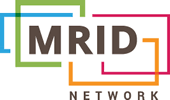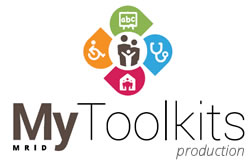Approximately 30% of all Australians living with a disability or caring for somebody with a disability live outside of major cities, in regional or remote areas (ref: Australian Bureau of Statistics, Data Source: 2011 Census of Population and Housing). Traditionally, the majority of specialised health services are located in major cities, and ready access to health services is varies greatly with geographical location.
Distance can create a significant barrier to access to healthcare for those living with disability and complex health needs. Prior to accessing care, families must:
- Establish which specialist services are available, where they are and what form they take;
- Access referrals and establish contact with unfamiliar service providers;
- Confirm clinic or specialist appointments;
- Make arrangements to interrupt routines and cover commitments for the necessary time away from home (including time off work, time out of respite care, childcare, etc);
- Cover the costs of travel and accommodation;
- Prepare for the difficulties and discomforts experienced during travel and in unfamiliar environments by people with complex health needs;
- Arrange follow up support locally.
These challenges are experienced by all families living with disability and complex health needs. However, these challenges are amplified for those in regional and remote settings, and may be exacerbated by a sense of isolation and stress due to a lack of available support.
 Co-Design offers an alternative model for developing strategies for the care and support of individuals and families living with disability, in ways that are most convenient for them. Co-Design tools and processes – which emphasise the importance of understanding consumer experience – can be utilised to drive the reconsideration and transformation of service delivery to ensure barriers to access are identified and overcome wherever possible. This in turn increases the likely effectiveness and sustainability of any health strategies that might be put in place and significantly increases their chances of success.
Co-Design offers an alternative model for developing strategies for the care and support of individuals and families living with disability, in ways that are most convenient for them. Co-Design tools and processes – which emphasise the importance of understanding consumer experience – can be utilised to drive the reconsideration and transformation of service delivery to ensure barriers to access are identified and overcome wherever possible. This in turn increases the likely effectiveness and sustainability of any health strategies that might be put in place and significantly increases their chances of success.
Co-Design provides a framework for metro-based health professionals to work in collaboration with regionally-based service providers in order to better meet the needs of regional and remote families. Rather than “coming in and taking over,” a consultative approach, with the aim of building local capacity and providing educational support to key participants, supports valuable collaboration and a successful ongoing relationship.
Regionally-based health professionals have much to contribute in this collaborative process, particularly expertise in regards to established local networks, medical professionals and support agencies. Involvement of these key stakeholders is critical when exploring new ways of delivering care to regionally-based families.
New technologies also provide multiple options for metro-based health professionals to work more flexibly and effectively with consumers, carers and families across distance. Every opportunity should be taken to exploit their potential. Videoconferencing, teleconferencing, websites, email and simple telephone calls may be utilised to enable interactions between clinicians and consumers or carers. These can be used to ensure consumers are fully engaged at the micro level, in the development of care and support strategies designed to suit them specifically, and at the macro level, when a health service is working with a large group of clients or a consumer group to improve service delivery overall.
Co-Design requires a rethink not just of how health professionals work with consumers or carers but also where, and this is particularly true for families living in regional or remote areas. Establishing partnerships with community-based organisations and service providers from different sectors (such as schools and non-government organisations) can create opportunities for providing support to families in ways that wouldn’t have been possible otherwise.
For example, pop up clinics in rural schools or group homes can provide opportunities for a number of consumers to be assessed by the specialty team. Inviting local primary health providers, family and other support workers to these pop up clinics allows for multidisciplinary collaboration, capacity building and education.
Read more about school clinics at SchoolKit.org.au.
The Angelman Syndrome Association and the Angelman Syndrome Clinic provide access to health care and support for families in regional and remote areas, and enable their involvement in the Co-Design of clinic services in many ways. Some examples include:
- Connecting families to others through the group network (via email, an online forum and the sharing of stories in a regular newsletter) to provide emotional support and advice;
- Ensuring regional families are offered opportunities to participate in both association-led and clinic-based activities (e.g via tele or videoconferencing);
- Providing a clinic email address to answer any questions from families, and triaging requests on contact to establish how support might best be provided. This often includes exploring alternatives to a physical clinic appointment if the support required can be delivered via some other mechanism such as phone, email, or videoconference;
- Holding clinics on Saturdays so as to meet with families travelling from regional areas and interstate at a time that is most convenient for them;
- Consulting with families and their local health providers to offer specialist information, advice and guidance about available care and treatments, sources of further information and other resources;
- Making information available about the clinic and its comprehensive range of services via the ASA website;
- Providing updates, reports on activities and information from the clinic team via ASA newsletters, and inviting feedback on information provided;
- Using email distribution lists to invite families to participate in service reviews surveys to determine priority themes for discussion in focus groups;
- Moving conferences from state to state to bring them close to different groups of families in turn;
- Securing grants and funding to cover costs of attending conferences for families from regional and remote areas;
- Involving families in working with primary health care providers in regional areas to build local capacity to provide integrated care strategies;
- Offering school clinics in regions where these have been piloted.
For more information visit the Angelman website.




